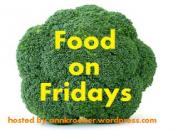Uncorked. Successfully.
She’s Not a Drunk!
Listen to the tale a certain fifteen-year-old boy may have told his family after he ran into my mother-in-law.
“So I was walking down the street this morning, heading to Rudy’s house. All of a sudden this old lady comes running out of her house with a wine bottle in her hand. She had one of those cork-puller thingies in her other hand, the kind that has a blade on each side that you slide in between the cork and the glass.
“She says, ‘Excuse me, can you help me open this? We really need to get this bottle opened.’ I take it from her and I see that the cork is all chewed and nicked up–she must have been trying really, really hard to get that cork out.
“So anyway, I take it from her and I work the cork out of the bottle. She says, ‘Oh, thank you! You have no idea how much we needed this! We couldn’t find the regular corkscrew and we just couldn’t work the cork out with this thing. Thanks!’ Can you imagine? It was only ten o’clock!“
Maybe his sisters snicker. Maybe his parents shake their heads. Maybe the family offers up a prayer for the neighbor lady who must have a terrible alcohol problem if she is so desperate at ten a.m.
It would be very kind of these people to pray for my mother-in-law’s alcohol problem, if she had an alcohol problem.
But she doesn’t. What the boy didn’t know, couldn’t know, is that inside, she and I had been looking, without success, for a waiter’s corkscrew. On her kitchen counter all the ingredients for a luscious bœuf bourguignon awaited our culinary attentions: the beef, mushrooms, onion, bay, and thyme all sat, waiting for the key ingredient, the wine. Our husbands were off pursuing some manly activity for the day and I’d promised to prepare a hearty meal for us to share once they returned.
I should have asked Rich to open the bottle before they left. Or asked Dad where he keeps his corkscrew. But I didn’t.
Without red wine, bœuf bourguignon is simply stew. And we couldn’t open the bottle. Mom was hurrying across the street to ask a neighbor for help when she spotted the young man walking down the street, so she sought his aid.
Hours later, after our menfolk returned home for their excursion, we sat around the table enjoying our bœuf bourguignon over noodles, a crisp spinach salad serving as a foil to to its richness. I shared the story of Mom’s expedition in search of able hands to open the bottle and we laughed, long and easy. Then it occurred to me that the boy would have a story to tell about his encounter with my mother-in-law.
It would be compelling. And it would be wrong.
I’m going to remember the wine-bottle escapade next time I think the little trailer of behavior I’ve glimpsed accurately provides me the plot to the whole two-reel film.
I hope.
We’re sense-making creatures, after all: We couldn’t function if we didn’t interpret what we see around us and make decisions based on that information, all day long. Those little snippets of life we observe offer us value.
But when I’m trying to discern something more significant than, say, when the stoplight will turn green, when I’m trying to understand another person’s heart, then I need to watch the whole film first. It’s so tempting to think I understand more than I do.
Right now, I’ve watched a trailer and I need to load up the whole film before I respond. If I’ve interpreted the trailer properly, I need to do something about a significant wrong. But maybe, just maybe, that film I’ve glimpsed is a comedy, not a dark drama. It’s hard, sometimes, to be patient, to wait for understanding before I act.
It challenges me because I think I know.
My friend Glynn Young wrote just last week about how our eyes can deceive us–or rather, how our hearts can mislead us when we rush to conclusions. His patience stands as a model for me as I watch to see how this plot unfolds.
Please pass the popcorn.
24 Do not judge according to appearance, but judge with righteous judgment.
John 7:24 (NASB)
I’m linking with Ann Kroeker at Food on Fridays. Please stop by to see what’s cooking!





Recent Comments